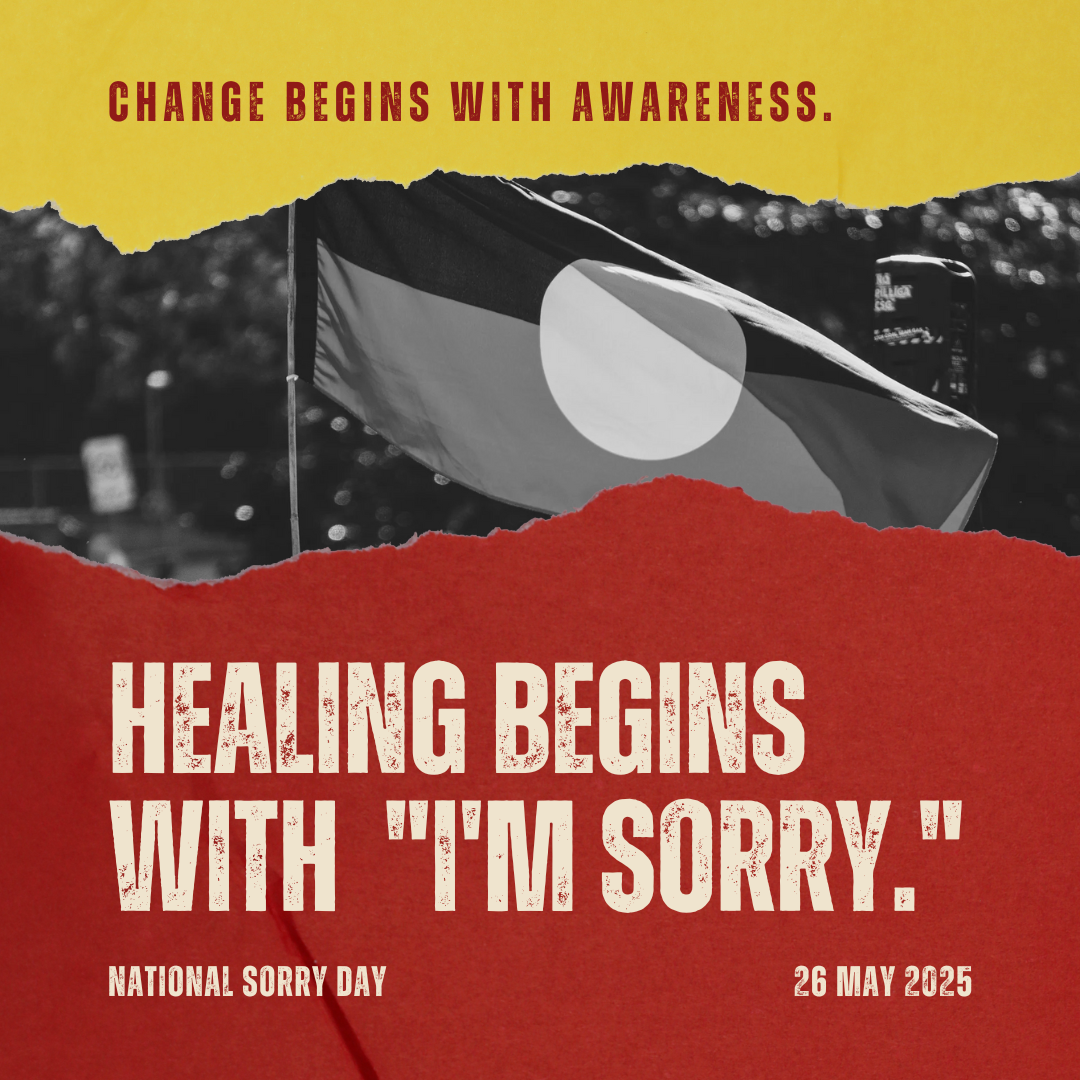National Sorry Day: Honouring the Stolen Generations and Advancing Reconciliation in Australia

Each year on 26 May, Australians come together to observe National Sorry Day—a day of reflection, remembrance, and responsibility. It is an opportunity to acknowledge the profound impact of historical government policies on Aboriginal and Torres Strait Islander peoples, particularly the Stolen Generations, and to reaffirm the country’s ongoing journey toward truth-telling and reconciliation.
What Is National Sorry Day?
National Sorry Day is a significant event in Australia’s reconciliation calendar. It recognises the pain and trauma caused by the forcible removal of Aboriginal and Torres Strait Islander children from their families—children who are now known as the Stolen Generations.
Observed annually, the day also highlights the incredible resilience of Indigenous communities and the importance of ongoing healing, justice, and truth.
The Origins: Bringing Them Home and the National Apology
The first National Sorry Day was held in 1998, following the release of the Bringing Them Home report in 1997. This landmark document detailed the personal accounts of the Stolen Generations, uncovering decades of policies that led to widespread family separation and cultural disconnection.
In 2008, then-Prime Minister Kevin Rudd issued a formal apology to the Stolen Generations on behalf of the Australian Government. While this moment marked a historic milestone, the annual observance of National Sorry Day ensures that these stories—and the call for justice—remain part of the national consciousness.
Why National Sorry Day Matters in 2025
National Sorry Day goes beyond symbolic gestures. It asks Australians to:
- Acknowledge the true history of Australia
- Understand the lived experiences of the Stolen Generations
- Support healing and reconciliation initiatives
- Advocate for structural change and community-led solutions
These steps are essential for building a future based on mutual respect, empathy, and accountability.
How to Commemorate National Sorry Day
There are many ways individuals, schools, workplaces, and communities can participate in National Sorry Day activities:
- Attend a local Sorry Day event or smoking ceremony
Observe a moment of silence in respect for those impacted - Share or read survivor stories to deepen understanding
- Display Sorry Day posters in community spaces
- Educate yourself—read the Bringing Them Home report or watch First Nations documentaries
- Support Aboriginal-led organisations and Indigenous businesses
Small acts of awareness contribute to larger cultural change. Truth-telling in Australia begins with education and listening.
National Sorry Day and National Reconciliation Week
National Sorry Day marks the beginning of National Reconciliation Week (27 May – 3 June), an annual celebration of shared history and a collective call for unity.
Key dates include:
- 27 May – Anniversary of the 1967 Referendum, which allowed Aboriginal and Torres Strait Islander peoples to be counted in the national census.
- 3 June – Mabo Day, commemorating the 1992 High Court decision recognising native title rights for First Nations peoples.
Together, these moments anchor Australia’s journey toward reconciliation, inclusion, and cultural justice.
Final Thoughts: Moving from Awareness to Action
Reconciliation in Australia is not a destination but an ongoing process—one that starts with listening and grows through action. National Sorry Day is a powerful reminder of this. It invites all Australians to reflect on the nation’s past, recognise the resilience of First Nations communities, and walk forward together with respect and purpose.
To learn more, get involved, or find a National Sorry Day or Reconciliation Week event near you, visit Reconciliation Australia.
